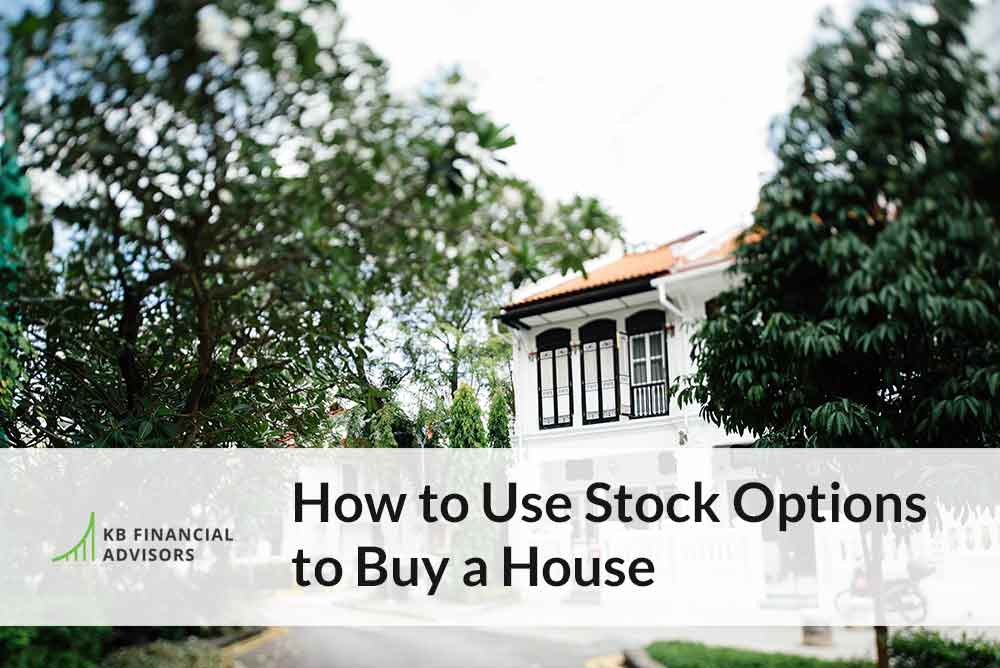For many Americans, buying a house is often a primary financial goal. However, in places like San Francisco or New York, it can be challenging to save up enough each month to put toward a down payment on a home in the area you love. Professionals in the tech industry have a neat way to navigate around this obstacle to home ownership: their stock options and RSUs.
In many cases, leveraging your employee stock options and RSUs can help you to create the down payment that the home of your dreams requires. That being said, before you shackle yourself to a $1 million+ house, it’s important to determine whether or not buying a house is right for you.
Should You Buy a Home?
As with any major financial decision, there are positives and negatives to buying a home in the Bay area. The benefits to homeownership are countless, ranging from tax savings to owning an asset in which you grow value.
However, buying in the San Francisco area comes with a host of other problems. The general rule of thumb for purchasing a home is to buy a house that’s 2-2.5x your income, and to put down 20% at a 15-year or 30-year fixed rate mortgage. Unfortunately, for those of us living in the Bay area, that means that with a $300,000 salary you’re allowing yourself to purchase a $600,000 home.
Anywhere else in the country, this might be feasible. But in San Francisco? Not so much.
When considering whether or not to buy a home, you’ll need to weigh the pros and cons, then determine whether or not homeownership fits into your unique financial plan.
Benefits of Homeownership
First and foremost, there’s a colossal tax saving for homeowners. Under the new tax law, mortgage interest up to $750,000 of the mortgage principal is deductible. That’s a hefty chunk of change that you can be saving each year on your taxes. There are also new limits on state and local income tax (SALT) of $10,000 per year, and the higher standard deduction ($12,000 single, $24,000 married filing jointly). For many taxpayers, this could mean that mortgage interest will be one of the few ways left to itemize deductions and save more money during filing season.
Beyond tax savings, homeowners also are able to earn equity in their home – something renters can’t do. When you own a home, your house is an asset that grows in value. Rent is, unfortunately, just an expense that works against your cash flow every month.
The other positive to owning a home is that you can leverage your mortgage to positively impact your overall financial situation. A 30-year, fixed-rate mortgage is typically the best way to go about this. For example, if you have a $200,000 down payment – you can buy a $1 million home. You borrow $800,000 from the bank with a 30-year, fixed-rate mortgage. Everything about your mortgage is fixed – your payments, terms, and the rate at which you borrow.
If your home appreciates, you get to keep any and all appreciation on the total home value of $1 million. If interest rates go up, you win! Your mortgage rate is fixed, so you don’t have to worry about rising rates. If rates go down, you can always refinance to a lower, fixed interest rate. Either way – you’re put in an exceptional financial position.
Disadvantages of Homeownership
Eventually, we like to see a lot of our clients purchase homes – even in the Bay area. However, you need to be able to walk into homeownership with both eyes open – there are definitely downsides to consider. The most obvious of which is that homeownership is expensive.
Did you think that rent is expensive in San Francisco? Try owning a home. Many people buy a home, and feel like that’s all they have. This concept, often referred to as being house poor, can force people into choosing between owning and maintaining a home or living their lives to the fullest with travel, experiences, and other values-based spending.
You’ll also give up a notable amount of flexibility when you own a home. It’s relatively easy to break a lease when you’re renting. You may have to pay a percentage of the rent still owed according to your contract, but after that you’re free to do whatever you choose. Selling a home, on the other hand, is significantly harder – even in bustling real estate markets like San Francisco. For this reason, it’s wise to avoid purchasing a home until you can picture yourself living there forever.
Keep in mind, you aren’t actually going to live there until the day you die. The point of this exercise is that you shouldn’t be able to imagine moving out anytime soon. The longer you commit to staying in your home, the more likely that buying will be a good financial decision for you.
Finally, owning a home puts a damper on many of your other financial plans. The biggest financial goal that often takes a backseat when buying a home is saving money.
You’ll have to save up for a 20% down payment, monthly mortgage payments, homeowners insurance, property taxes, HOA fees, and the list goes on. In order to continue saving at a rate that matches your lifestyle expectations and future goals, you’ll need to adjust your behavior. More of your money will go into your house as you work to pay your mortgage, while less will be funneled into other savings accounts.
How Much House Should You Buy?
This is a tricky decision, but you should base it off of your salary and expected bonuses. Everywhere else in America, people target home buying at 2-2.5x their annual income. In San Francisco or New York, where property values are higher, people tend to target 3-4x their annual income.
One of the first steps you should take is finding a good loan officer and real estate agent to get pre-qualified for a mortgage. This will help you to determine exactly how much house you can afford before you start shopping around. It will also help you to start building a strategy around which stock options you’ll need to sell – and when – as you continue on your journey to homeownership.
Determine What Stock Options to Sell & When
This is an often-written-about topic that we’ve tackled before at KB Financial Advisors. The basic selling order for stock options is:
- RSU
- ESPP
- NQ
- ISO
- Shares
If you’re buying a house, you may need to deviate from this stock option selling framework. With a house in mind, you have a definite goal: to create a down payment. That’s different than just selling your stock in a way that’s tax efficient without a defined goal to free up cash flow for a major purchase. To figure out which stock options you should sell first when trying to purchase a home, you’ll need to follow these steps:
#1: Calculate the Taxes Resulting from the Sell of Your Options
Creating a down payment with stock options isn’t as simple as determining how much you need and selling that amount. You need to take taxes into account. For example, let’s assume you are selling NQ and you are in a 37% federal bracket and 10% state bracket. That’s a total of 47%. You might need to sell $378,000 total just to net $200,000 for a down payment. See? Taxes complicate things. You should consider working with a professional to determine the best stock-selling strategy when trying to buy a home.
#2: Consider Selling More
It’s tempting to sell just enough to cover your down payment, but the truth is that expensive homes can dramatically impact your day-to-day finances. If you sell enough stock to cover a down payment and then some, you’ll be able to fully fund an emergency account to cushion the blow should the unexpected happen.
With a house and a mortgage, the emergency reserve should be tied to your mortgage balance. In other words, having approximately 20% of your mortgage stashed away in an emergency fund is wise. So, if you have an $800,000 mortgage, you need $160,000 set aside for emergencies.
Get Organized
Working with a financial advisor is the best way to get organized when considering homeownership. Buying a house can be incredibly stressful, and too many tech professionals deal with sticker shock, then sell stock in a frenzy to make their down payment.
A financial advisor can help you to organize a stock selling strategy that mitigates the impact of taxes on your funds, helps you to pad your emergency fund, and make the down payment for your new home. They can also help to reduce some of the stress you’re likely feeling around purchasing your home.
The key is to take your time, and to find a financial planner who has helped people in your situation before. At KB Financial Advisors, we help tech professionals create a plan to make homeownership in San Francisco a reality, and can guide you through the best way to get organized according to your unique financial needs and long-term goals.



